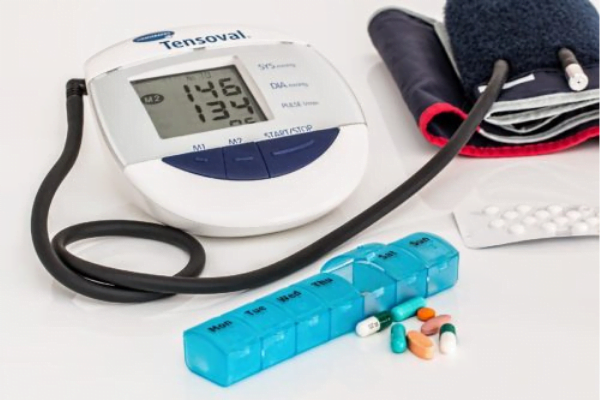Our society, with the western diet that is high in fat, cholesterol, sugar and abundant in processed foods, is an environment that promotes obesity, metabolic syndrome and cardiovascular disease. Additionally, these factors are not without an impact on the development of autoimmune diseases.
Our immune system is designed to rid of foreign invaders like bacteria or viruses. We can picture our immune cells as soldiers fighting those invaders. However, in the case of autoimmune diseases, our immune system starts to mistakenly attack our own body’s healthy tissues or organs.
Common examples of this type of disease include psoriasis (Ps), rheumatoid arthritis (RA), lupus, multiple sclerosis (MS), inflammatory bowel disease (IBD), type 1 diabetes mellitus (T1DM).
Genetic aspects clearly predispose to the development of inflammatory autoimmune diseases. However, environmental factors are important triggers too. Some researchers point that psychosocial stress, smoking and alcohol consumption may increase the risk and severity of autoimmune diseases. They also mention lack of physical activity and excess calorie intake that increase rates of obesity, and in turn the risk of autoimmune diseases.
Correlation between obesity and immune system
We now know that there is a link between inflammation (a heightened immune response) and obesity. Obesity might affect the function of our immune system and play a major role in the development of autoimmune diseases.
Some researchers suggest that high BMI and obesity before adulthood are associated with a higher risk of developing multiple sclerosis. They also link obesity and metabolic syndrome to psoriasis and rheumatoid arthritis.
Additionally, some studies link obesity with increased risk of sarcoidosis, type 1 diabetes and Crohn’s disease.
Mechanisms
Adipose (fat) tissue is an endocrine organ that actively produces cytokines (signalling molecules that mediate and regulate immunity, inflammation and hematopoiesis). These cytokines are also called adipokines. In people with obesity, the adipose tissue may be dysfunctional and secrete an increased number of adipokines. This can lead to chronic low-grade inflammation that is not related to infection or tissue damage. This obesity-related inflammation may impair the function of other organs and lead to obesity-related comorbidities.
Diet and autoimmune disease
Diseases clearly affected by diet are Crohn’s disease and ulcerative colitis (UC). These are generally grouped together as inflammatory bowel disease (IBD), where the pathologically affected organ is the gut.
A high-fat diet can exacerbate IBD. Additionally, some studies suggest that diet rich in animal protein may potentially predispose to Crohn’s disease and ulcerative colitis. On the other hand, a diet high in omega-3 fatty acids can have a protective effect.
When it comes to multiple sclerosis and rheumatoid arthritis, consumption of milk, animal fat and meat may be associated with the disease. Again, omega-3 fatty acids, as well as fibre, can play a protective role.
Management of autoimmune diseases
Diet
Some suggest that the AIP diet (Autoimmune Paleo diet) can be effective. This diet builds upon the foundations of the approach of a Paleo Diet and can help reduce inflammation and other symptoms of autoimmune disorders through avoiding gut-irritating foods.
The AIP involves excluding certain types of food for a period of time followed by careful re-introduction. This is to examine the effects of particular foods on health. Such diet focuses on whole foods and suggests excluding any processed foods, products with added sugar or other additives that can trigger an autoimmune response.
However, there is not enough evidence to confirm that the AIP diet can reduce inflammation or provide other benefits. This diet, due to restrictions and exclusion of many foods can be very limiting and increase the risk of nutrient deficiencies. Such a diet requires careful planning and monitoring by a healthcare professional and could be a part of a wider treatment programme, rather than its replacement.
In some autoimmune diseases such as type 1 diabetes, Crohn’s disease or hyperthyroidism, unintended weight loss may occur. For others, excess weight may be an issue. Furthermore, weight gain or loss may be a side effect of the medications. It is, therefore, crucial to plan appropriate management of the disease with your doctor to keep your weight within range.
Individual approach
Each person and each disease is different so it’s important to work closely with a specialist who has experience in treating your specific autoimmune disorder.
Bottom line is that we should all strive to maintain a healthy weight and follow a balanced diet consisting of vegetables, fruits, whole grains, lean meats, and low-fat dairy. Certain foods could make symptoms worse therefore, it is worth avoiding or limiting them. These include highly processed foods and foods that contain unhealthy fats, added sugar, or added salt.
It is also important to stay active. Being physically active is likely to make you feel better and support you in maintaining a healthy weight. Flexibility exercises, such as yoga, Pilates, and stretching are often recommended. Also light cardio like swimming, walking or cycling could be beneficial. As your autoimmune disorder progresses, you may find it helpful to work with a physiotherapist to find appropriate forms of movement.
Simplyweight’s Specialist Online Weight Loss Plan has been designed to bring decades of clinical experience to people at an affordable price. To learn more, start your 7-day free trial today: https://app.simplyweight.in/subscribe/free-trial













